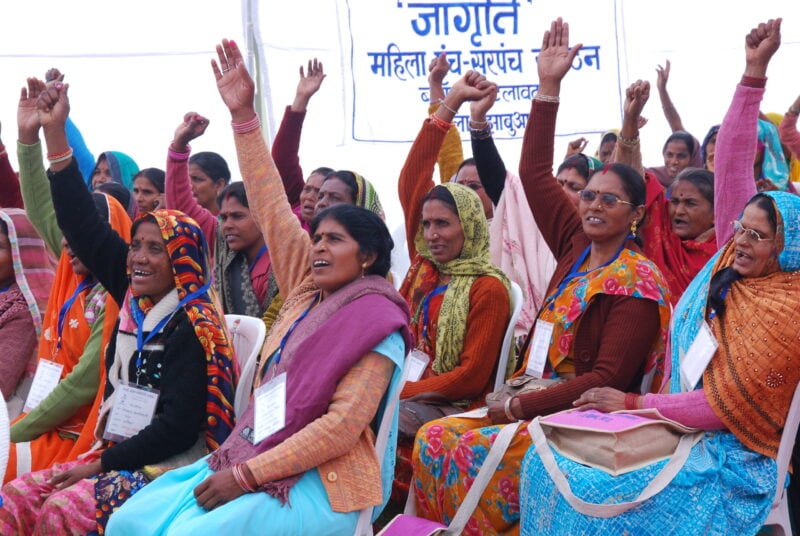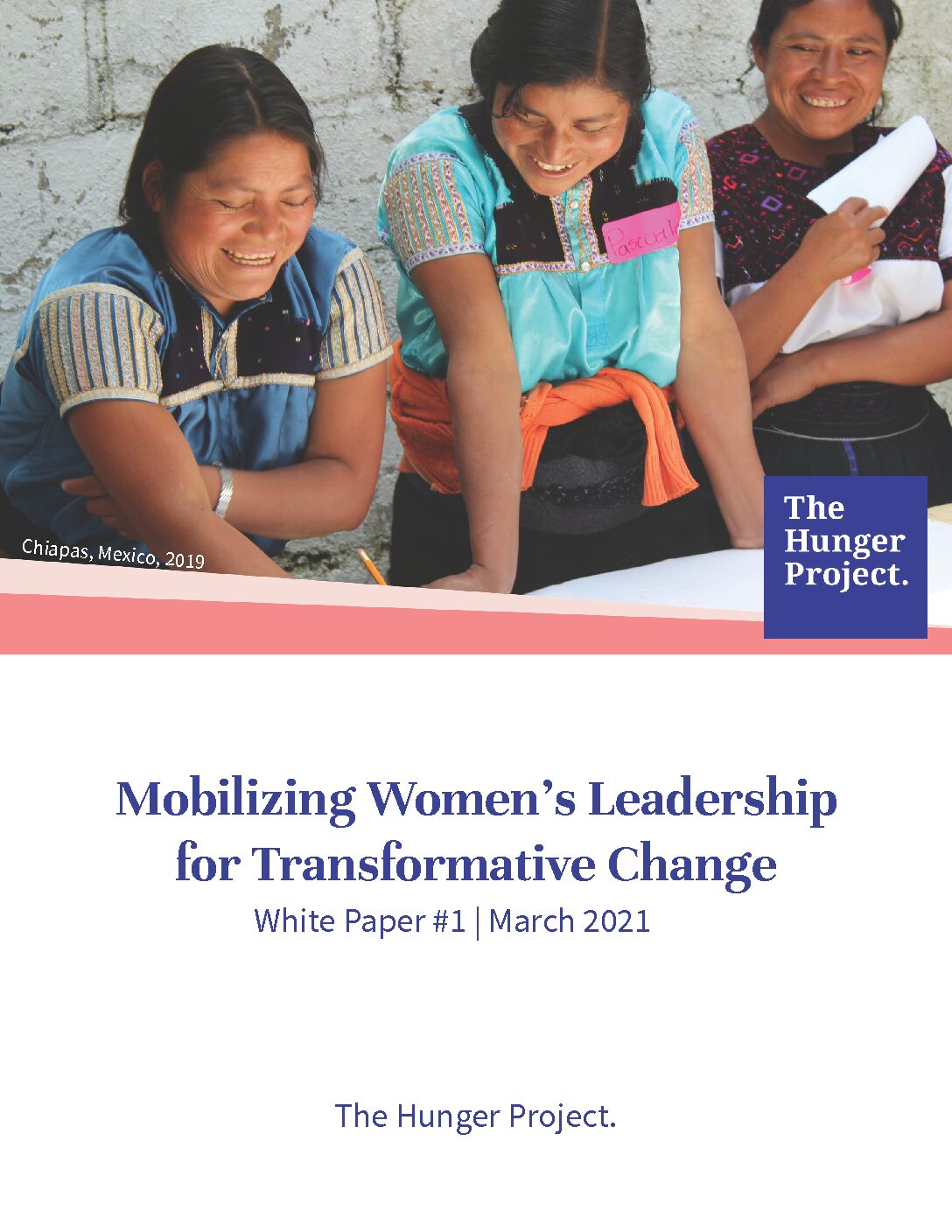2021 marks a milestone in the implementation of global commitments to gender equality. Forty-five years since the first UN Women’s Conference, 25 years since the adoption of the Beijing Declaration and Platform for Action, and with a decade remaining to achieve the Sustainable Development Goals, it is time to re-examine our global approach to fostering women’s leadership as a way to bring about transformative change.
Despite commitments made in the Beijing Declaration to take strategic and decisive action, no country has so far achieved gender equality and the COVID-19 pandemic has caused significant setbacks. It has also revealed, and worsened, many of the hidden inequalities that women face.
This is our new starting point—and an opportunity to advance and protect the human rights of all women and girls.
We at The Hunger Project have worked with women leaders in rural communities with high levels of hunger and poverty in Africa, Latin America and South Asia for over 30 years. Drawing on the lessons we have learned from mobilizing their participation and leadership in community-led development activities—holistic, multisectoral activities that mobilize communities for action—we have developed a set of policy recommendations for governments, donor agencies and implementers to increase the role of women in public spaces and in decision-making processes.
The success of the Beijing Agenda’s commitment to advance women’s leadership will depend on its implementation at the local level. Focusing on the community-level allows the greatest number of women who live with hunger and in poverty to exercise their agency and voice, and to bring about transformative change. Community-led approaches help address the complex web of issues that women face—particularly those created by the patriarchal system in many societies—and provide an opportunity for women to lead in the decision-making process. This results in solutions that are holistic, long-term and appropriate to the local context.
Our recommendations include:
For Government
- Establish participatory democracy at the community-level, where most women living with hunger and poverty are able to participate. There should be established quotas for women’s leadership and formal systems for inclusive social accountability.
- Allocate at least 20% of public resources to the community-level. Governments should invest in organizations that carry out and strengthen local development actions and projects. Volunteerism by local citizens can supplement the limited resources of low-income governments – teachers, nurses and farm extension agents – to ensure everyone can access services.
For Donor Agencies
- Invest in the capacity of and elevate the collective voice of grassroots civil society, particularly through organizations of women, youth and other marginalized groups. This will require localizing foreign assistance funding beyond the national level and identifying organizations that are building networks in rural areas.
- Design and support interventions from a rights-based framework. Create and advocate for agencies that view women as active citizens, rather than as beneficiaries or vulnerable groups.
For Implementers
- Consider how women’s engagement in development processes changes over time and note any correlation between this and their overall time poverty — a common barrier to wellbeing for women globally. According to the Movement for Community-led Development’s latest review of 173 programs, community-led development programs reported a heavy reliance on women’s participation individually or through community groups. While this is important for addressing harmful gender norms and ensuring inclusion of women in public and political spaces, it does raise the question of women’s time poverty, particularly in the short run. Programs must identify ways to redistribute burdens between women and men in a way that allows women time to participate.
- Facilitate the entry of women into the political pipeline. Capacity-development opportunities and awareness raising provide targeted support to women facing discrimination in public life and politics.
To learn more or to review our comprehensive set of recommendations, click the image below to view or download our white paper.


